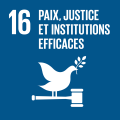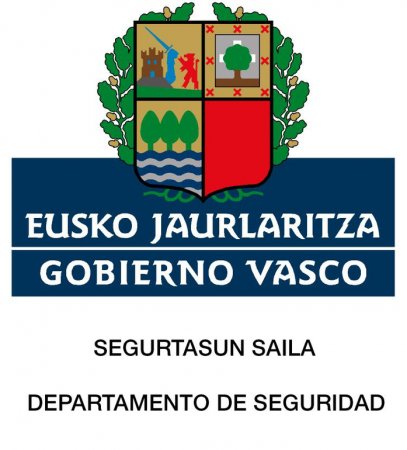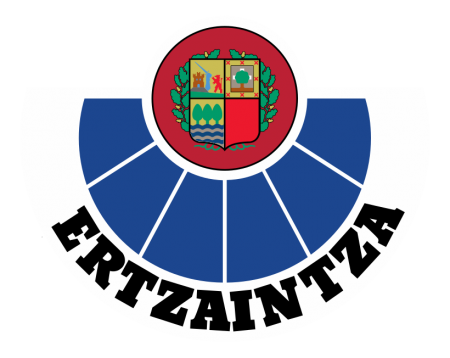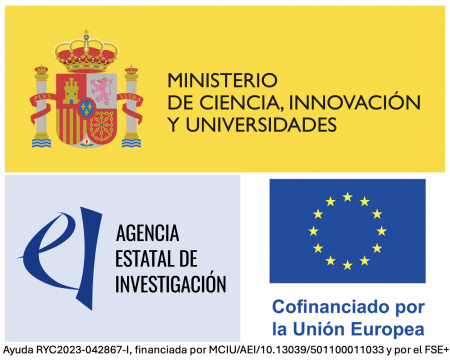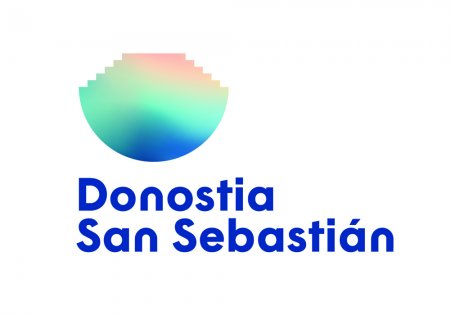
International symposium on violence risk assessment
From research to practice in clinical, correctional and law enforcement settings
Description
This international symposium will bring together leading experts, researchers, practitioners and a non-specialist audience to explore the multifaceted challenges of violence risk assessment across mental health, correctional, and policing settings.
The event will delve into the complex relationship between mental disorders and different violent behaviors (including intimate partner violence, sexual violence or suicide), examine key risk and protective factors, and showcase cutting-edge approaches to risk prediction and management.
Through keynote lectures, and panel discussions the symposium aims to foster interdisciplinary dialogue and promote evidence-based practices. It will also serve as a platform for knowledge dissemination to both specialized professionals and the general public, in line with the principles of open science and public engagement. It will be a unique opportunity to learn about the origins, current developments, and future directions of violence risk assessment, offering both a deeper understanding for society at large and an up-to-date overview for professionals working in the field.
Objectives
Advance scientific understanding of violence risk assessment and management
Often misunderstood, violence risk assessment is a crucial methodology for preventing harm and threats. By critically examining current research on risk factors and violent behavior, and identifying emerging trends and gaps, the symposium will help both professionals and interested attendees deepen their understanding of the field.
Promote evidence-based risk assessment
Enhancing the knowledge of those working in mental health, correctional, or law enforcement settings is key to improving case management and follow-up. Presenting and discussing validated tools and methodologies will support this goal.
Enhance risk management strategies
Risk assessment is intrinsically linked to risk management and protection. Exploring practical approaches to managing individuals at risk—including intervention planning, multidisciplinary collaboration, and ethical considerations—will help improve current practices and highlight the relevance of this methodology.
Encourage interdisciplinary collaboration
Violent behavior is a complex phenomenon that requires coordinated responses. One objective of the symposium is to emphasize the importance of collaboration across disciplines and clarify the roles and responsibilities of different services when cases span multiple sectors. Dialogue among professionals in psychiatry, psychology, criminology, and policing will be key to this effort.
Support public engagement through open science
Making scientific knowledge accessible to a wider audience promotes transparency, societal awareness, and informed public discourse. The symposium will offer the opportunity to explain risk factors, assessment procedures, and violence prevention strategies in an inclusive and engaging way for lay audience.
Activity directed to
- All public
- University student
- Teachers
- Professionals
Organised by
In collaboration with
Directors
Dr. Loinaz is a psychologist and criminologist, currently a Ramón y Cajal researcher at the University of the Basque Country (UPV/EHU) and member os the OSAKLINIK research group. He specializes in violence risk assessment, forensic psychology, and intimate partner violence, with additional research on sexual violence, female offenders, and child-to-parent violence. He is the author of more than 30 scientific articles, book chapters, and manuals, including Manual de evaluación del riesgo de violencia (Pirámide, 2017), the first comprehensive handbook on this topic in Spanish. He collaborates different police services in the development and adaptation of risk assessment tools for gender-based and domestic violence. Dr. Loinaz has received several awards, including the Mariano Yela Award from the Spanish Society of Forensic Psychology (SEPJF, 2014), where he currently serves as a board member. His current research focuses on updating the gender- and domestic-violence risk assessment system used by police in the Basque Country—funded by the Basque Government—as well as developing new procedures for assessing risk in other contexts
Speakers

Ana Eugenia Abasolo Telleria
Eusko Jaurlaritza / Gobierno Vasco, jefe de servicio
Dr. Abásolo is a forensic physician and Head of the Clinical Forensic Medicine Service of the Bizkaia Subdirectorate at the Basque Institute of Legal Medicine (IVML). With training in both Medicine and Psychology, she is also a specialist in forensic psychiatry and, since 2018, has led the Comprehensive Forensic Assessment Unit (UVFI) of Bizkaia. Her work focuses on the medico-legal evaluation of complex cases, particularly in the context of gender-based violence, domestic violence, and other forms of interpersonal violence, coordinating an interdisciplinary team that integrates medical, psychological, and social perspectives. With a career spanning more than two decades in the forensic field, she has promoted improvements in the comprehensive assessment of victims and offenders and in coordination with the courts. She is the author of the doctoral thesis Homicide and Homicide Offenders. A Descriptive Study of Homicide in the Province of Bizkaia (1992–2013), a pioneering work analyzing clinical, sociodemographic, and legal variables of individuals accused of homicide. Most recently, she has co-led the project The Impact on Professionals Working with Victims.

Jose Maria Bastos Marzal
Eusko Jaurlaritza - Gobierno Vasco, Director de Justicia
Since August 2024, he has been Director of Justice at the Department of Justice and Human Rights of the Basque Government. He served as a legal expert in the Senior Corps of Prison System at Puerto 1 Penitentiary Center from 1993 to 1995, and at Nanclares de la Oca Penitentiary Center until 2011. From that date, he was Deputy Director of Treatment at the new Araba Penitentiary Center, coordinating the technical team responsible for the classification and intervention of individuals deprived of liberty. In 2021, following the transfer of powers on penal execution to the Basque Country, he became head of the Prison Center Analysis and Inspection Program within the Directorate of Justice of the Basque Government, under the Department of Equality, Justice and Social Policies. He is a trainer for cohorts of assistant and technical corps at the Penitentiary Studies School of the General Secretariat of Prison Institutions, as well as for interim staff of the penitentiary corps in the Basque Country.

Sandra Chiclana
Dr. Chiclana is Head of Specific Treatment Programmes at the Directorate-General for Penal Enforcement and Social Reintegration (Madrid). She holds a degree and PhD in Psychology from the Autonomous University of Madrid and has been a member of the Senior Corps of Prison Technicians since 2004. She is responsible for the nationwide monitoring of crime treatment programmes in prisons. She is an associate professor in the Department of Social Psychology at the Faculty of Psychology of the UNED, teaching subjects such as Crime Prevention and Treatment Programmes and Extremism, Radicalisation and Terrorism. Her research focuses on violent radicalisation, terrorism, hate crimes and gender-based violence. She is an advisor on international prison prevention and deradicalisation projects, such as the European MULTIPREV project (2022-2026), which focuses on the development and implementation of tools for assessing the risk of radicalisation in prisons. She has more than 15 publications in the field and has participated in the construction and validation of the Spanish prison system's violent radicalisation risk assessment tool (DRAVY-3).

Giovanni De Girolamo
Dr. Girolamo is a psychiatrist and the head of the Unit of Epidemiological Psychiatry and Digital Mental Health at the IRCCS Clinical Research Centre in Brescia, Italy, where he previously served as Scientific Director. From 1988 to 1994, he worked in the Division of Mental Health at the World Health Organization (WHO) in Geneva, Switzerland, under the leadership of Norman Sartorius. Dr. de Girolamo has led 25 national and international research projects funded by various national and international agencies. These include the Italian site of the World Mental Health Survey Initiative, the EU study on the transition from child and adolescent to adult mental health services, the EU study on forensic psychiatry, the EU study on physical comorbidities in individuals with bipolar disorder, and, most recently, the EU study on youth mental health. He has authored 503 publications, including 41 books or monographs, 388 articles (305 indexed in PubMed), and 76 book chapters. His H-index is 105 (Scopus, May 2025).

Seena Fazel
Dr. Fazel is Professor of Forensic Psychiatry at the University of Oxford, Director of the Centre for Suicide Research and Honorary Consultant Forensic Psychiatrist at Oxford Health NHS Foundation Trust. He is also Senior Associate at Pembroke College and a member of the UK Independent Advisory Panel on Deaths in Custody. He is an international reference in the study of risk factors. His research focuses on the relationship between mental illness and adverse outcomes, particularly in the criminal justice system. He has led pioneering studies on mental health in prisons, the assessment of risk of violence and suicide, and the prevention of these phenomena in vulnerable populations. He uses advanced epidemiological methods and large population databases to develop predictive models that translate into systems such as those included in the OxRisk project. Dr. Fazel has received numerous awards and recognitions, including an honorary doctorate from the University of Basel (2022), election to the European Academy of Sciences and Arts (2022), and the National Institute for Health Research (NIHR) Senior Investigator Award.

Javier Óscar Fernández Cucó
-, -
Javier Óscar Fernández Cucó, an Ertzaintza officer since 1983, is currently the Chief Commissioner of Citizen Protection at the Ertzaintza-etxea in Bilbao. He has been a member of the Ertzaintza's VD/VG Process Team since 2010. He holds a degree in Criminology from the University of Alicante in 2010 and a Social Studies degree from the University of Zaragoza in 1991. Publications: • Review of policies and practices regarding gender-based violence. Conference in honor of José María Lidón, 7 and 8 November 2019. Ertzaintza: Risk Assessment in Gender-Based Violence. José María Lidón Criminal Notebooks, No. 16. University of Deusto Publications. ISBN 978-84-1325-102-8 • “PRISON: AN INSTITUTION UNDER DEBATE,” Ratio Legis Ediciones, Salamanca. ISBN: 978-84-942028-1-0. “Consequences of the restrictive interpretation of the obligation to inform victims of gender-based violence of the aggressor's prison status,” pp. 63 to 72.

Katerina Hadjimatheou
Dr. Hadjimatheou is the Director of the Centre for Criminology at the University of Essex. She is an applied ethicist and criminologist whose work focuses on the use of technologies and data in policing, criminal justice, and security. Her research particularly addresses issues related to domestic abuse, surveillance, criminal records, and human trafficking. It has been funded by the British Academy, the Home Office, ESRC, Innovate UK, MOPAC, and the European Commission, among others. She currently serves as Chair of the British Society of Criminology’s Policing Network and has been a member of ethics committees for the National Crime Agency, HMRC, and the College of Policing. She is also a member of the MET Police Research Ethics Committee and Chair of Essex Police’s Data Ethics Committee. Dr. Hadjimatheou has provided independent consultancy and expert advice to the Foreign Office, European Commission, United Nations, US National Science Foundation, Cabinet Office, Ministry of Justice, and the EU border agency FRONTEX. She has contributed to evaluations of domestic abuse interventions for Islington Council and the College of Policing, and is an expert on the Domestic Violence Disclosure Schemes adopted in different countries.

Zoe Hilton
Dr. Hilton is Professor of Psychiatry at the University of Toronto and Senior Research Scientist at the Waypoint Centre for Mental Health Care. She is the lead author of the Ontario Domestic Assault Risk Assessment (ODARA), brief actuarial tool created to aid decision making by police and other first responders to intimate partner violence (IPV). She continues to conduct validation studies of the ODARA and other risk assessment tools, and led the development and evaluation of in-class and online professional training (“ODARA 101”). Dr. Hilton has over 30 years of experience in IPV research, forensic psychology, and violence risk assessment, leading multi-site projects and translating research into practical tools for police and justice systems. Her work focuses on evidence-based approaches to risk assessment, coercive control, and improving decision-making in policing and mental health contexts. She has authored numerous publications and was awarded the 2010 Significant Contribution Award by the Canadian Psychological Association Criminal Justice Section for outstanding contributions to domestic violence risk assessment, as well as multiple Provincial awards for teamwork and community service.
Dr. Loinaz is a psychologist and criminologist, currently a Ramón y Cajal researcher at the University of the Basque Country (UPV/EHU) and member os the OSAKLINIK research group. He specializes in violence risk assessment, forensic psychology, and intimate partner violence, with additional research on sexual violence, female offenders, and child-to-parent violence. He is the author of more than 30 scientific articles, book chapters, and manuals, including Manual de evaluación del riesgo de violencia (Pirámide, 2017), the first comprehensive handbook on this topic in Spanish. He collaborates different police services in the development and adaptation of risk assessment tools for gender-based and domestic violence. Dr. Loinaz has received several awards, including the Mariano Yela Award from the Spanish Society of Forensic Psychology (SEPJF, 2014), where he currently serves as a board member. His current research focuses on updating the gender- and domestic-violence risk assessment system used by police in the Basque Country—funded by the Basque Government—as well as developing new procedures for assessing risk in other contexts

José Manuel Muñoz Vicente
He holds a degree in Psychology from the Complutense University of Madrid, where he specialized in Criminology and obtained an official Master’s Degree in Criminology and Juvenile Delinquency. He also completed a Master’s in Criminal and Forensic Psychopathology at Camilo José Cela University. Since 2005, he has worked as a forensic psychologist at the Institute of Legal Medicine and Forensic Sciences of the Community of Madrid. In addition, he serves as coordinator of the Psycho-Legal Unit at the Research Center for Forensic and Security Sciences at the Autonomous University of Madrid. He combines his professional practice with teaching and supervising internships in various postgraduate programs related to Forensic Psychology. He has published several scientific works mainly focused on forensic psychological assessment and has contributed to the development of expert practice guidelines. He is also a board member in the Forensic Psychology in Family section at the Spanish Society of Legal and Forensic Psychology (SEPJF).

Joakim Petersson
Dr. Petersson has a Ph.D in Health Sciences and is currently working as a senior lecturer in Criminology at the School of Behavioural, Social and Legal Sciences in the Örebro University, Sweden. His research is associated with the Stalking and Partner Violence (SToP) research group and Center for Violence Studies – both at Örebro University. Dr. Petersson´s research focuses on perpetrators of intimate partner violence, with a specific focus on subtypes, risk assessment and risk management. His research also includes studying professionals' response to IPV, including the police and social services, and multi-agency collaboration. He is currently involved in several research projects, including a six-year (2019-2025) project funded by the Swedish Research Council for Health, Working Life and Welfare, to improve the collaboration between the Swedish police and social services in risk management of intimate partner violence and stalking, and a three-year project (2023-2025) evaluating treatment services for IPV perpetrators. He has on several occasions served as an international expert on how to prevent IPV (e.g., at seminars arranged by the EU Commission).

Ana Sánchez Rubio
Universidad Pablo de Olavide de Sevilla
Dr. Sánchez Rubio is a professor of Procedural Law at Pablo de Olavide University (Seville, Spain). She holds a degree in Law and Business Administration, a master's degree in Law and New Technologies, and a PhD in Law from the same university. Her research focuses on criminal procedure, forensic evidence and the use of scientific and technological tools in the judicial system, including issues related to the admissibility of evidence, constitutional guarantees and judicial cooperation. She is the author of numerous scientific articles, book chapters and monographs, and has participated in national and international research projects funded by the Spanish Government and the European Union. She has received several academic awards, including the Extraordinary Doctorate Award and the Young Scientific Culture Award. Her publications include monographs such as Trastornos mentales y justicia penal (2017), Discapacidad y riesgo de los sujetos pasivos con trastorno mental en la justicia penal (2022) o Internamientos no voluntarios por razón de trastorno psíquico (2024).

Iñaki Subijana Zunzunegui
Tribunal Superior de Justicia del País Vasco, Presidente
Magistrado y Fiscal en excedencia. Ingresó en la carrera judicial en 1990, con primer destino judicial eb el juzgado de primera instancia e instrucción 1 de Azpeitia, en la provincia de Gipuzkoa. Tras ascender a magistrado, pasó la Audiencia Provincial de Cádiz (1992 y 1995). Sus siguientes destinos fueron ya en San Sebastián: juzgado de primera instancia 5 y juzgado de lo penal 2. En 2001 pasó a la sección primera de la Audiencia Provincial de Gipuzkoa. Presidió la Audiencia Provincial de Gipuzkoa desde septiembre de 2010 a abril 2021. En 2004 obtuvo el Doctorado en Derecho Penal por la UPV/EHU y en 2015 ha obtenido el título de Mediador que otorga la Fundación Notarial SIGNUM. Tiene reconocida la especialización en Derecho Civil especial o foral propio de la CAPV. Tutor externo del Practicum del Grado de Derecho en la UPV/EHU y profesor del Instituto Vasco de Criminología. Actualmente es Presidente del Tribunal Superior de Justicia del País Vasco, desde abril 2021.
Registration fees
| Registration | Until 17-11-2025 |
|---|---|
| 0 EUR |
Venue
Miramar Palace
Pº de Miraconcha nº 48. Donostia / San Sebastián
Gipuzkoa
Miramar Palace
Pº de Miraconcha nº 48. Donostia / San Sebastián
Gipuzkoa
Sustainable development goals
Agenda 2030 is the new international development agenda approved in September 2015 by the United Nations. This agenda aims to be an instrument to favour sustainable human development all over the planet, and its main pillars are the eradication of poverty, a reduction in equality and vulnerability and fostering sustainability. It is a unique opportunity to transform the world up to 2030 and guarantee human rights for all.

3 - Good health and well-being
Guarantee a healthy life and foster the well-being of all people of all ages. Key issues: universal healthcare coverage, sexual and reproductive health, reduction in the number of road accident casualties, pollution and chemical products, reduction in maternal and neonatal mortality, the end of epidemics such as AIDS, combating hepatitis and other water-borne diseases, drug and alcohol prevention, control of tobacco.
More information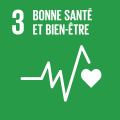
5 - Gender equality
Achieve gender equality and empower all women and young girls. Key issues: the end of all forms of discrimination and violence, recognition of unpaid care and domestic work, shared responsibility, equal opportunities, full and effective participation in reproductive rights, equal rights vis-à-vis economic resources, access to land and other assets and ownership.
More information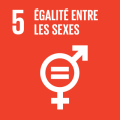
11 - Sustainable cities and communities
Make cities and other human settlements inclusive, safe, resilient and sustainable. Key issues: access to suitable housing and basic services that are secure and affordable, suitable and sustainable transport systems, inclusive urban planning, participative planning and management, protection of cultural and natural heritage, air-quality, green zones, and connections between urban, peri-urban and rural areas.
More information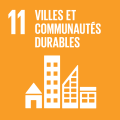
16 - Peace, justice and strong institutions
Foster peaceful and inclusive societies for sustainable development, facilitate access to justice for everyone and construct efficient and inclusive institutions that are accountable at all levels. Key issues: a reduction in violence, mistreatment and exploitation, the rule of law, equal access to justice, a reduction in corruption and bribery, efficient and transparent institutions, participation, access to information, protection of fundamental freedoms.
More information